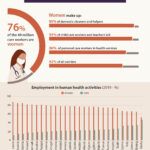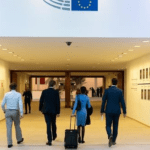Significant barriers to reporting hate crime across the EU hinder victims’ access to protection and justice, finds a new report of the EU Agency for Fundamental Rights (FRA). Many victims do not report attacks, as it is too difficult or they do not trust the police. FRA calls on EU countries to encourage hate crime reporting, improve its recording and ensure victims can get support, protection and justice.
“EU countries have a duty to ensure access to justice for all. But too many hate crime victims do not report being attacked and too many countries do not record hate crimes properly,” says FRA Director Michael O’Flaherty. “This needs to change. Countries should simplify reporting and improve hate crime recording, investigation and punishment to fully uphold victims’ rights.”
FRA’s latest report ‘Encouraging hate crime reporting: the role of law enforcement and other authorities’ highlights the gaps in hate crime reporting across the EU. FRA calls on EU countries to remove barriers that prevent victims and witnesses of hate crimes from coming forward and to encourage reporting. The report highlights what needs to change to move towards a victim-centred approach so victims can get justice:
- End discrimination and empower victims – EU countries need to empower victims and witnesses to come forward and report hate crimes. They need to tackle structural discrimination and prejudice in society, eliminate discriminatory policing, publicly condemn hate crime and raise victims’ awareness of their rights and support available.
- Improve reporting, recording and referrals – EU countries need to make hate crime reporting easier, for example by enabling third-party or anonymous reporting. This needs to be coupled with improvements to national recording and data collection systems. Standardised referrals to and from support services would also better protect and support victims.
- Build capacity to tackle hate crime – EU countries should provide practical guidance and training to the police, establish specialised hate crime units and ensure structured cooperation between law enforcement authorities, victim support organisations, civil society organisations and equality bodies.
Millions of people across the EU experience hate-motivated violence and harassment. This can be due to their ethnic or immigration background, skin colour, religion, gender, sexual orientation or disability. FRA’s surveys of immigrants and ethnic minorities, Jews, LGBTI people or Roma and Travellers shed light on the extent of discrimination and violence these groups face in Europe.
FRA’s recent Fundamental Rights Survey highlights that some minority groups experience twice as much violence as people generally.
Up to 9 in 10 people do not report being attacked. Most think that nothing would change if they report it, it is too difficult to report or they do not trust the police.
The new EU Anti-racism Action Plan 2020-2025 and the EU Strategy on victims’ rights 2020-2025 both stress the need to improve hate crime reporting and recording.
The recent key guiding principles on encouraging hate crime reporting and this report should help countries put an effective victim-centred approach to reporting hate crimes into place.
FRA’s new project will look into understanding online hatred towards certain groups. Results are due in 2023.
More information
Related bibliography
Encouraging hate crime reporting – The role of law enforcement and other authorities







Leave a Reply